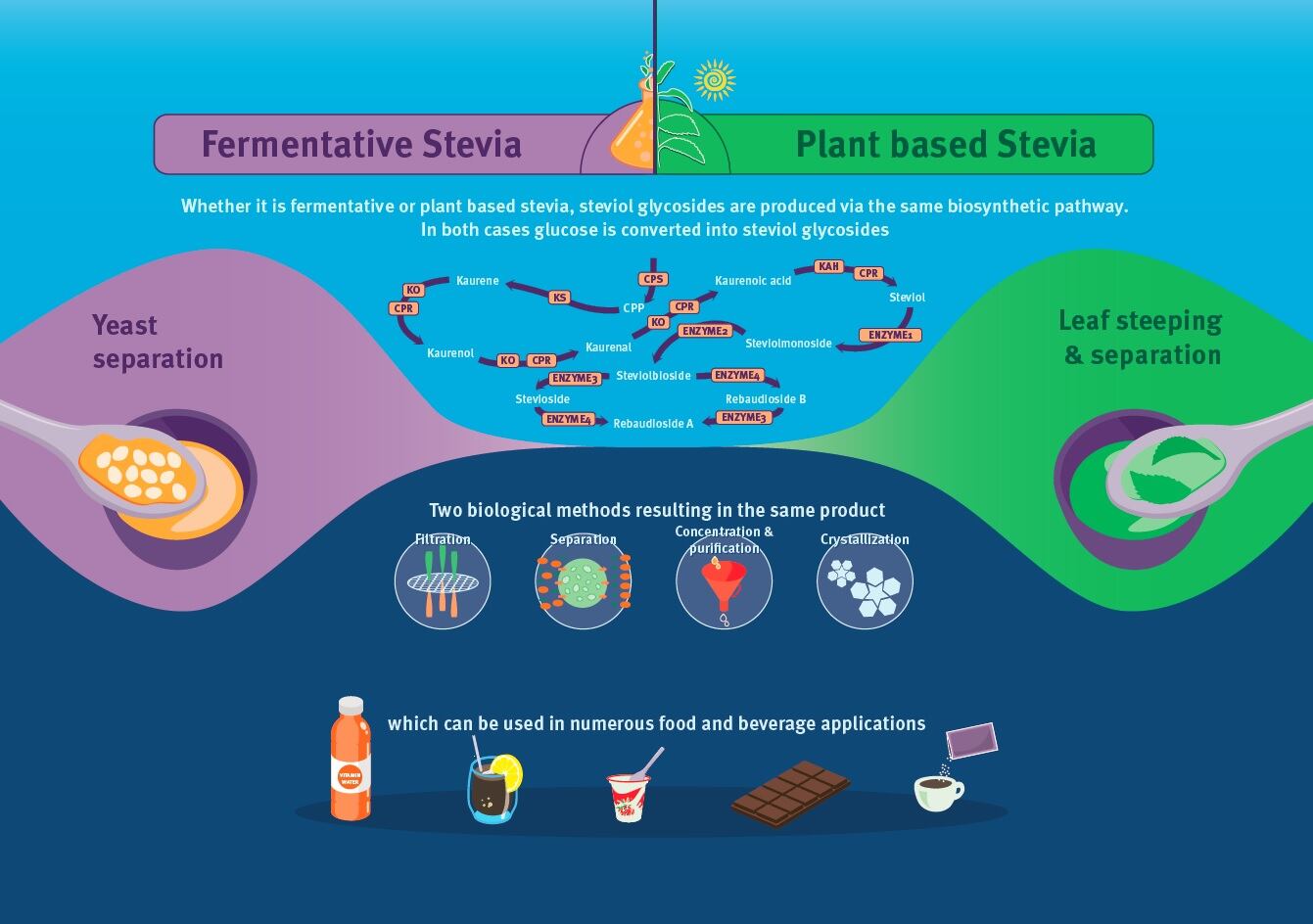There are currently three methods touted to produce stevia: Straight from the plant, via an enzymatic process (for example, Stevia First is aiming to go to market in 2015), and via fermentation.
Greg Kesel, Regional President Americas of DSM Food Specialties, told us in New Orleans: “I fully expect all methods to have their benefits. People will want the plant extract, and if stevia really starts being a part of consumer goods and the reduced calorie trend then you’re talking about a massive volume, and you’ll need all of these different methods.”
The timing looks good for DSM’s entrance, with market data indicating a dramatic 73% increase year on year for stevia sweetened products were launched throughout the world (more than 2,100 products were launched globally last year). From 2011 to 2012, year over year growth in stevia-sweetened products launches was just 37%.
The total value of the low or reduced sugar food market accounted for almost $52 billion last year, said the company.
“DSM has filed a significant number of patent applications relating to fermentation-based production of steviol glycosides last year to secure its unique technology and significant investments,” said Kesel. “As a next step, we will be piloting our technology in 2014 by making food-grade samples available to our customers.”
The company currently has one published patent (WO2013110673) and 17 unpublished patent applications relating to this technology, he said.
Kesel added that the company is finishing its GRAS notification submission with a view to launching end of 2015.

